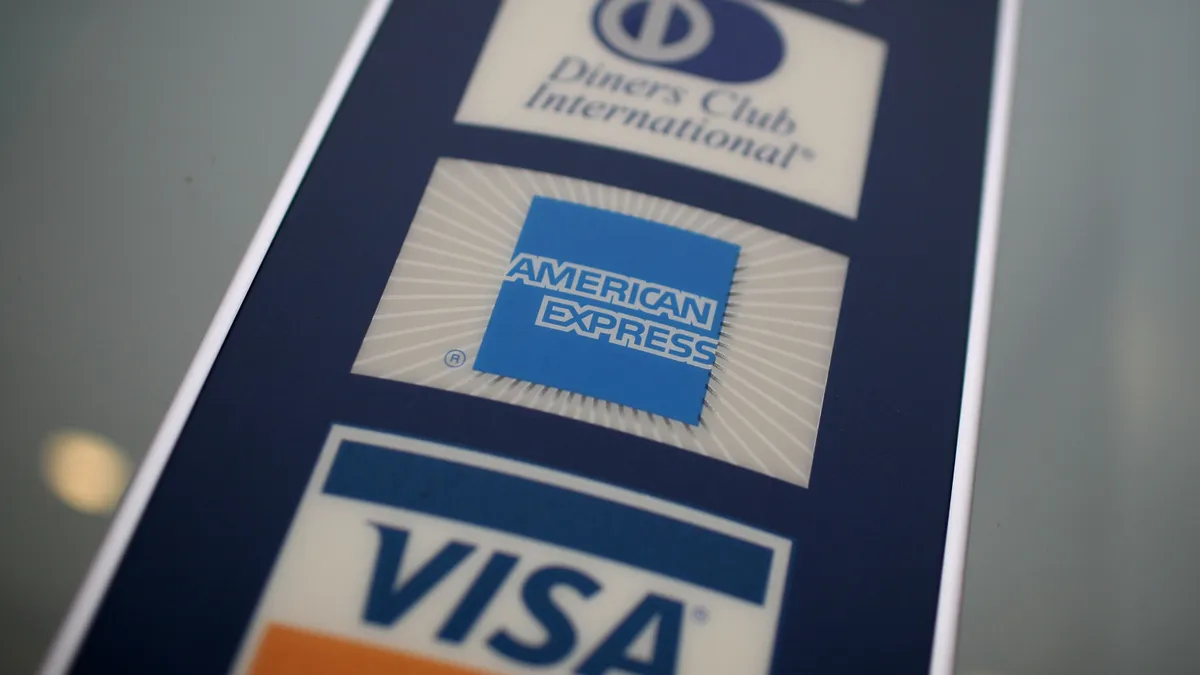U.S. District Judge Daniel Traynor ruled Wednesday that the Federal Reserve exceeded its authority more than a decade ago when it put regulations in place on fees bank card issuers can charge retailers and other merchants when consumers swipe debit cards.
“Accordingly, the Court will vacate Regulation II, 76 Fed. Reg. 43,394 (July 20, 2011), because it is contrary to law and was promulgated in excess of the Board’s authority,” the U.S. District Court for North Dakota said in a judgement issued Thursday.
The case filed initially by the North Dakota Retail Association and the North Dakota Petroleum Marketers Association against the Federal Reserve in April 2021 is part of a long-standing fee battle between banks and card networks on one side, and retailers and other merchants on the other side. While financial institutions that issue the cards, and their card network partners, have pressed for higher fees, merchants have pushed to lower them.
The judge stayed the decision to give the Fed time to appeal the ruling “to prevent interchange transaction fees from becoming a completely unregulated market,” the court order said.
A spokesperson for the Fed declined to comment on the court ruling.
While the litigation has been playing out in court, the central bank in 2023 for the first time said it would update the rates for debit card fees allowed under the Durbin Amendment. The fee rates for routing debit card transactions were initially set in 2011, after the amendment became law as part of the 2010 Dodd-Frank Wall Street Reform and Consumer Protection Act, and haven’t been changed since then.
The Federal Reserve Board voted in October 2023 in favor of reducing the cap on the debit card interchange fee to reflect current costs for the transactions. The proposal would lower the base debit fee rate by about 30% to 14.4 cents from 21 cents, according to a proposal memo produced by the Fed’s staff. The proposed changes to Regulation II would also adjust the amounts that banks subject to the rule can charge to cover fraud costs and to counter fraud losses. Only financial institutions with $10 billion or more in deposits are covered by the rules, know as Reg II.
While that Fed proposal has been pending, the Supreme Court injected its voice into the debate in July 2024, ruling that plaintiffs in the North Dakota case, including a Watford City, North Dakota truck stop and convenience store called Corner Post, could continue to challenge the Fed’s existing debit card interchange rate despite an appellate court ruling that the complaint was barred by a six-year statute of limitations.
Corner Post, which became the main plaintiff in the case, is represented by Stephanie Martz, who is also general counsel and chief administrative officer for the National Retail Federation. Martz lauded the latest ruling by Traynor, saying in an interview that it supported everything her camp has been arguing for years.
While she acknowledged that the Fed is likely to appeal the decision, she said she hoped it wouldn’t. She said the central bank should scrap its plan to update the fee rules, and just craft new regulations. The Fed “could just go ahead and promulgate a rule that comports with the Durbin Amendment,” she said.
“The rationale of the revised rule, even though we certainly were encouraged by it because it lowered the cap by quite a bit, it's now invalid under this court ruling,” Martz said. “So, we strongly urge the Fed to move ahead with a rule that only considers enumerated [authorization, clearing, and settlement] costs and that sets rates based on individualized transaction costs.”
Bank trade groups reacted negatively to the ruling. The Clearing House, which is owned by major banks, and the Bank Policy Institute issued a joint statement by email disagreeing with the court decision.
“We are severely disappointed in the Court’s interpretation of the Durbin Amendment,” the two groups said in an emailed statement. “The payment system is secure, convenient and reliable because of significant investment by banks, and today’s decision, if affirmed, would undermine that system.”
Mark Horwedel, an industry consultant who was formerly a payments executive retail behemoth Walmart, said he believes the ruling is long overdue. "They basically ignored what the law said at a cost of billions to merchants over 14 years," Horwedel said in an interview.
The Fed misinterpreted the Durbin Amendment by taking factors like fraud prevention into consideration in determining the fee rates, argued Horwedel, who was also formerly CEO of an industry trade organization called the Merchant Advisory Group.
Patrick Cooley contributed to this story.






















